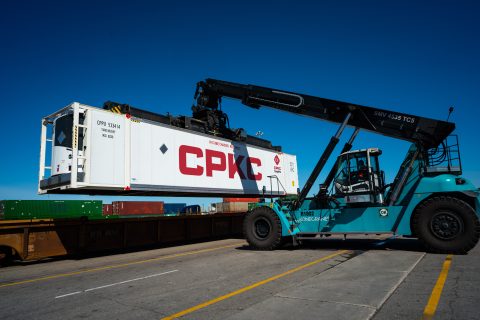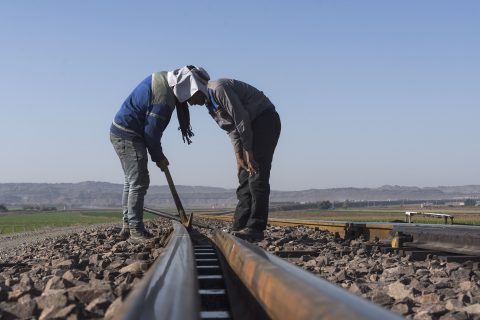Decision for Rhine-Alpine alternative on Rhine left bank is now up to France

Pledges to find alternative rail freight routes along the left bank of the Rhine river have been discussed for a few months now due to rising capacity bottlenecks along the main line. Now the ball seems to be in the hands of France, which should make a decision on the matter by next autumn.
According to German local media Die Rheinpfalz, Switzerland has already given its green light to create a continuous route on the left bank of the Rhine. The country has given its availability to fund part of the project already last May. However, it is not clear yet how much the Helvetic Confederation is willing to spend on this. Another reason for the necessity of alternative routes is that the Rhine Valley Railway, connecting Karlsruhe to Basel, will not be ready before 2040-2045, as Hupac mentioned.
A debate launched in August
Last August, various Swiss rail freight companies, including Hupac, SBB Cargo International, VAP, and BLS Cargo, proposed four solutions to boost rail freight traffic on the left bank of the Rhine. One of them is the upgrade of the border-crossing railway connecting Worth, in Germany, with Strasbourg, in France. The parties involved pointed out that with relatively small investments, it would be possible to have 60 daily freight trains running through this route in 10 years.
The other solutions suggested by the companies include easier access to diversion routes via France, and better management of corridor renovations in Germany. For the diversion of routes, the idea is to lift the ban on night rail traffic and hire bilingual staff to facilitate communications with German-speaking train conductors. For the management of corridor renovation, the parties are asking that alternative routes should always be available in case lines are closed for upgrade works. Moreover, they are highlighting the importance of a collaborative effort from infrastructure managers of the Rhine-Alpine corridor.
Also read:
- Italian waste in the Netherlands via rail: Switzerland is opposed too
- Switzerland: adverse reactions for SBB’s one-off financing and waivers plans
- A rail line in southern France reopens after ten years thanks to cereals
- Turin-Lyon: former politicians urge Macron to avoid ‘tunnel without trains’ scenario




